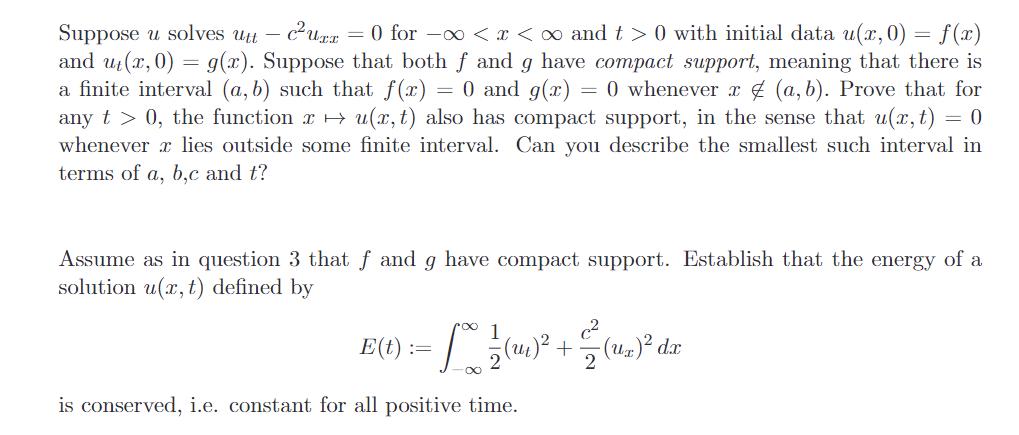(a,b). Prove that for Suppose u solves utt - UTT 0 for x < x 0 with initial data u(x,0) = f(x) and ut(x,0)

(a,b). Prove that for Suppose u solves utt - UTT 0 for x < x 0 with initial data u(x,0) = f(x) and ut(x,0) = g(x). Suppose that both f and g have compact support, meaning that there is a finite interval (a, b) such that f(x) = 0 and g(x) = 0 whenever x any t > 0, the function xu(x, t) also has compact support, in the sense that u(x, t) = 0 whenever lies outside some finite interval. Can you describe the smallest such interval in terms of a, b,c and t? Assume as in question 3 that f and g have compact support. Establish that the energy of a solution u(x, t) defined by E(t) := [ (0) + = 2 (0) d -(ur) dx is conserved, i.e. constant for all positive time.
Step by Step Solution
3.43 Rating (162 Votes )
There are 3 Steps involved in it
Step: 1

See step-by-step solutions with expert insights and AI powered tools for academic success
Step: 2

Step: 3

Ace Your Homework with AI
Get the answers you need in no time with our AI-driven, step-by-step assistance
Get Started


